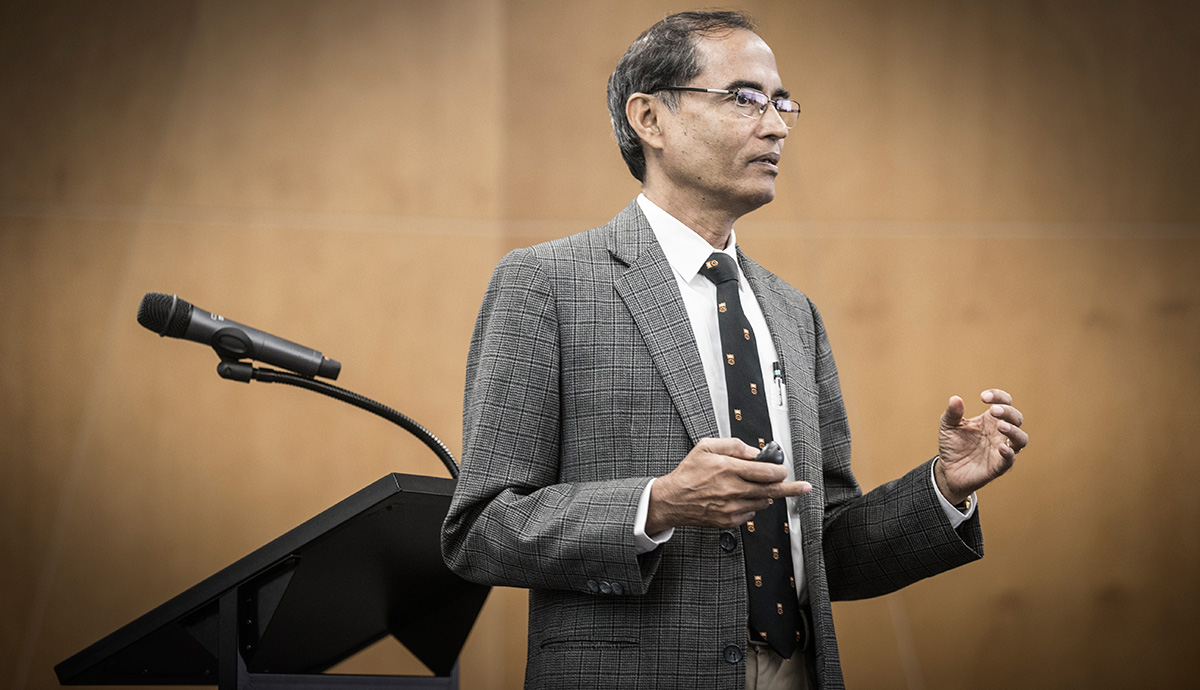October 22, 2015
High-profile Indian visitor helps strengthen ties
UOW’s linkage with the Indian Institute of Science has taken a major step forward this week with the participation of one of India’s leading theoretical chemists at a workshop held at the Innovation Campus.
Professor Eluvathingal Jemmis (pictured below) from the Indian Institute of Science in Bangalore took part in the workshop on ‘Boron: an amazing element from theory to application’. The workshop was organised by Dr Zhenguo Huang from the Australian Institute for Innovative Materials (AIIM) and the Institute for Superconducting and Electronic Materials (ISEM).
Professor Jemmis’ contribution to chemistry has been recognised by his election to the Indian Academy of Sciences (Bangalore), the Indian National Science Academy (New Delhi), the National Academy of Sciences (India) and the Academy of Sciences for the Developing World (Italy). He is collaborating with many outstanding scientists across the globe including his PhD and postdoctoral advisers, both of whom are Nobel Laureates.

Professor Jemmis believes that just as the basic tenets of the structural chemistry of carbon has stood the test of time and led to major developments in carbon, the same process has only now begun for boron.
The workshop was organised to coincide with his visit, which featured fellows of the Royal Australian Chemical Institute (RACI), fellows of the Royal Society of Chemistry (FRSC), fellow of the Australian Institute of Physics (AIP), and fellows of the American Association for the Advancement of Science (AAAS) – all of whom are high profile researchers on the world stage.
Top photo shows: Professor Eluvathingal Jemmis (front) with, Professor Louis Rendina, Professor Sean Smith, Professor Xiaolin Wang, Professor Will Price and Dr Zhenguo Huang.



:format(jpg)/prod01/channel_3/assets/live-migration/www/images/content/groups/public/web/media/documents/mm/uow204240.jpg)